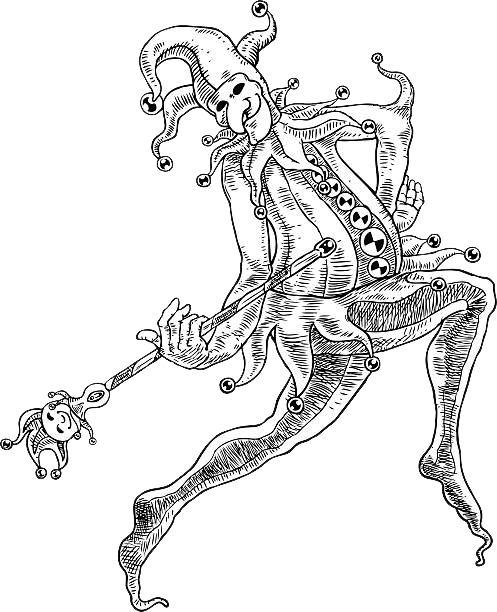3.1
Machinic Metaphysics: Transcendental Number and Harmony as Cosmology
During the period of immersion in this project I spent quite a bit of time researching and listening to ancient musical traditions and learning about tuning systems that predated baroque church music. Having previously studied the work of Pythagoras and Kepler including musica universalis53, Mysterium Cosmographicum54, just intonation55, Harmonices Mundi, and cosmological harmony I found myself digging through old books to begin experimenting with arcane tuning systems as a way of re-enchanting my newly constructed instruments and attuning my ears to forgotten modes of listening.
︎ Refer to Appendix A7 for ancillary musical, historical, and technical details
Without pontificating about the imposition of imperial standardization and religious tuning systems (equal temperament56) it is worth emphasizing that modifying the relationships of strings does greatly affect the musical and mathematical qualities of sound by literally changing the physics of the vibrating acoustic body. The perceptual subtleties of these harmonic relationships became a primary theme for this project that I’ve extrapolated into analogs for both the mathematical relationships in neural networks and the social relations in culture.
A commonality shared between both the Pythagoreans and many practitioners of machine learning is that of mathematical transcendence. This is the secular idealization of mathematics. Pythagorean tuning57 was the first time that a law of physics had been excavated from nature and expressed as mathematics. Like the Pythagoreans, some contemporary mathematicians believe that numbers are actual perfect metaphysical objects that exist in a transcendental world outside of time and material space. The idea that there is a perfect, eternal unchanging world of mathematics of which our material world is only an imperfect shadow passed into Europe through Plato via the Egyptian mystery traditions.58 These algorithms that are being developed are often likened to a way of tuning with the transcendents; a way of restoring mathematical order to a messy world. While I consider myself a Pythagorean, I garner some skepticism about the asymmetries of reality and metaphysics. Historically speaking, attempts to map sublime ideal metaphysical perfection onto material reality has frequently been bound up with violent political and religious atrocities.
Polish-American scientist and general semanticist Alfred Korzybski is known for his famous dictum: “the map is not the territory.” In the age of big data and deep learning we have many data scientists and entrepreneurs who are conflating the map and territory.
Forcing data to fit a model can happen if statistics are subjected to the dynamics of political economic incentives or force. This can result in epistemological meltdown of genocidal proportions. For example, the philosophical tenet of the ‘ontological essence’ postulated by Julius Evola and Martin Heidegger was an attempt to unite a metaphysical essence with the nationalistic statehood and were the quite literally the progenitors of fascist ideology. When considering the aforementioned applications (deportation59, predictive policing60, recidivism61, criminology62, et al.) invoking this alarmist signal isn’t unwarranted. Theories of immanence that encompass both metaphysics and materialism needn’t repeat the catastrophes of the 20th century. We have exemplary examples of the harmony of metaphysics and matter in the monads of Spinoza and Leibniz.
In some cases with machine learning we have begun to bend not just our perception of reality but reality itself. When Alan Turing’s concept of the incomputable63 & Kurt Gödel’s incompleteness theorem64 were formed, a new profound constructivist method for epistemology penetrated western metaphysics: the notion that informal automation of reason beyond thought was a way to extend logic beyond universal truth. After fully comprehending the theses of constructivism one might conclude that since it is possible to write our ideas onto material substrates, we need to be very careful with what we are are writing onto it. The cautionary inflection of my narrative is because these types of computational systems are authoring our reality with unforeseen implications. My aim with this project is to insist that we bring our attention to harmony, tuning, and practice. The discourse on calibration and tuning deep learning systems do not currently account for how they are being used inside of marketplaces or military contexts. Solving for x isn’t the problem, but if x happens to be substantiated by massive nonconsensual data collection, subjected to market forces65, or submitted to violent military-industrial programs66 it can poison and weaponize the work of honest scientists and engineers into disjunctive scenarios of catastrophic automated risk.
53 "Dartmouth Math Department - Geometry in Art & Architecture : Pythagoras " https://www.math.dartmouth.edu/~matc/math5.geometry/unit3/unit3.html
54 "Prodromus dissertationum cosmographicarum - ETH Bibliotek." https://www.e-rara.ch/doi/10.3931/e-rara-445
55 "Greek musical writings | Cambridge University Press, 1989." https://www.worldcat.org/title/greek-musical-writings/oclc/10022960
56 "The Establishment of Equal Temperament - Semantic Scholar." https://pdfs.semanticscholar.org/9f82/963c98ea99bd7d69d006e3085f61d1c220ef.pdf
57 "Pythagorean Intervals - UConn physics." http://www.phys.uconn.edu/~gibson/Notes/Section3_2/Sec3_2.htm
58 "Pythagoreanism (Stanford Encyclopedia of Philosophy)." https://plato.stanford.edu/entries/pythagoreanism
59 "Palantir Provides the Engine for Donald Trump's Deportation Machine." https://theintercept.com/2017/03/02/palantir-provides-the-engine-for-donald-trumps-deportation-machine
60 "Video-Based Abnormal Human Behavior Recognition - IEEE" https://ieeexplore.ieee.org/document/6129539
61 "COMPAS Recidivism Risk Score Data and Analysis - ProPublica." https://www.propublica.org/datastore/dataset/compas-recidivism-risk-score-data-and-analysis
62 "UPenn Criminologist on the Future of Artificial Intelligence" https://penntoday.upenn.edu/news/qa-penn-criminologist-richard-berk-future-artificial-intelligence
63 "Uncomputable Functions - Stanford University." https://web.stanford.edu/class/cs54n/handouts/15-UncomputableFunctions.pdf
64 "Gödel's incompleteness theorems - RationalWiki." https://rationalwiki.org/wiki/G%C3%B6del%27s_incompleteness_theorems
65 "Reporting Recipe: Using Amazon's Mechanical Turk for Data Projects" https://www.propublica.org/article/how-we-use-mechanical-turk-to-do-data-driven-reporting-and-how-you-can-too
66 "Disjunctive Scenarios of Catastrophic AI Risk - Nature." https://www.nature.com/articles/d41586-018-04602-6
